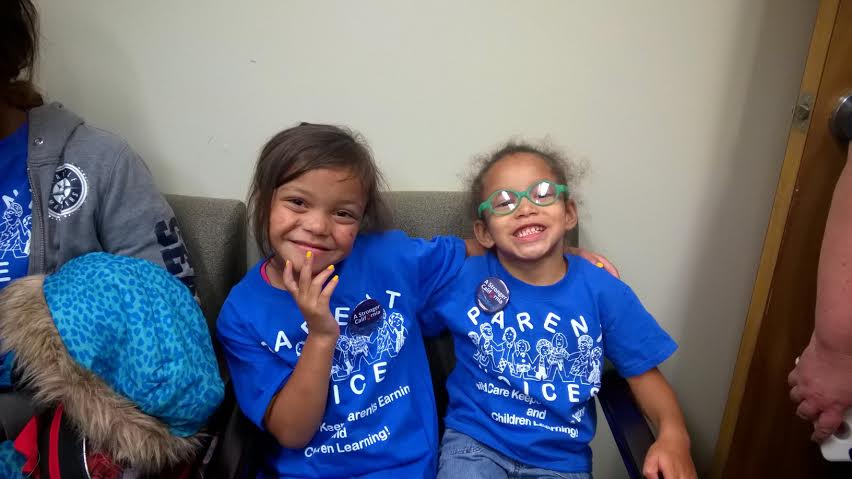Family Values @ Work Praises Dept. of Labor Grants to Support State and Local Paid Family Leave Initiatives

Three of the Grant Recipients Include States where Family Values @ Work has Coalitions
In response to today’s announcement that three states and three localities will receive Department of Labor grants to develop and implement paid family and medical leave programs, Ellen Bravo, executive director of Family Values @ Work, a network of coalitions in 24 states working to pass family-friendly policies, released the following statement:
“The announcement of a new round of grants to advance paid family and medical leave in states across the country is the latest example of the growing awareness that too many families face economic hardship for doing exactly what we ask of them – being good parents to a new or seriously ill child, or providing care for an ailing parent or partner or other loved one. These grants constitute a key step toward helping millions more Americans be good providers and good caregivers. We are especially proud that three of the states receiving these DOL grants are ones where FV@W has coalitions, which will provide funds to help further the work these coalitions are engaged in.
“We stand with Secretary of Labor Tom Perez in encouraging and continuing to fight for more states to lead on leave and pass paid family and medical leave legislation. However, a piecemeal approach still excludes millions of Americans—as a nation, we must make access to affordable leave available to all new mothers and fathers and all of those who need to care for themselves or a seriously ill loved one, regardless of where they live. We applaud the states leading the way in passing paid leave programs. Through their work, a growing body of evidence is debunking the predictions of doom from opponents and building on the momentum for the passage of a federal paid family and medical insurance program through the FAMILY Act.”
Background
The Family and Medical Leave Act – the only federal law designed to help working people meet the dual demands of job and family – leaves out 40 percent of the workforce and guarantees only unpaid leave, which many workers cannot afford to take. That means millions of workers who develop serious health conditions, have seriously ill family members or become parents are forced to choose between what is best for them and their families, and the income they need to cover basic expenses.
Family and medical leave insurance programs at the state level pool small contributions from employees or employees and employers so that workers can receive a percentage of their wages while they have to take extended family or medical leave. These programs help working families stay afloat when they need time to care for a seriously ill family member, a new baby or their own health. Successful funds already operate in three states – California, New Jersey and Rhode Island; New York became the fourth state to pass a paid family leave bill, which will go into effect in 2018.
Research has shown that paid family and medical leave programs contribute to increased family financial stability and improved child well-being, better workforce outcomes for new parents, reductions in government public assistance expenditures, and cost-savings for businesses. A 2013 study found that 87% of California employers said the state’s paid family and medical leave program had not resulted in any cost increases. A recent Rutgers study shows that New Jersey’s program has saved businesses money by improving employee retention, decreasing turnover costs, and improving productivity. Recent research shows that the majority of employers surveyed in Rhode Island support that state’s Temporary Caregiver Insurance program.
Under this DOL initiative, the state paid family and medical leave grants will provide assistance to states undertaking feasibility studies to support the development or implementation of paid family and medical leave programs at the state level. These funds will be provided for pre-implementation planning activities, which may include: designing a program; establishing protocol for withholding wages; defining family eligibility and benefits requirements; and articulating start-up activities. Funds may also be used for activities such as research and analysis, stakeholder consultation; conducting actuarial analysis; and development of a financing model and benefit structure.
###
Family Values @ Work is a network of coalitions in 24 states working to pass policies that value families at work such as paid sick days and affordable family leave.